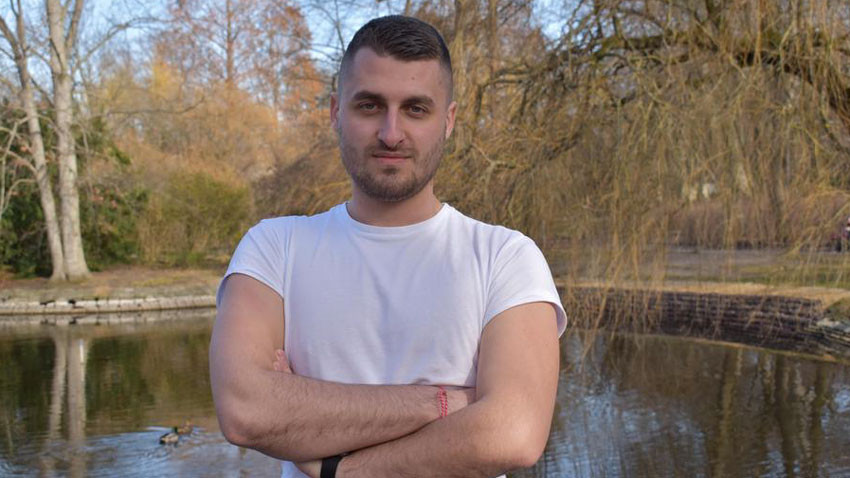
He also signaled that there was a problem with some of the voters who arrived in the section:
"Instead of a declaration stating that they will not vote anywhere else, they filled out an application to be added to the electoral roll, which has nothing to do with it. It seems that people have downloaded it from some website, which is not the one of the Central Electoral Commission. Therefore, they had to fill out a declaration again. This, of course, creates certain difficulties that may demotivate them to vote."
There are 49 registered voters in the polling station at the Bulgarian Cultural Institute in Berlin. "All others who want to exercise their right to vote fill out declarations. This slows down the process, but we are trying to compensate for it, since everyone votes by machine," said commission member Daniel Yanev in an interview with Radio Bulgaria.

As for the adequacy of the messages with which the politicians embarked on the election campaign, Yanev noted:
"The election campaign was devoid of substance. Accusations prevailed, there was little talk of what would happen in the future, and no concrete measures were proposed to solve the problems. People are tired of four parliamentary elections that have failed to produce a stable and durable government. No serious steps are seen to solve problems that we have been discussing since the protests in 2020 - corruption, lack of rule of law and others”.
He is also skeptical about the future after election day:
"I don't rule out the possibility of new elections, but whether they will be next year or in a year and a half - I don't know, but I don't think that any government created after today will be able to complete its full mandate. And the polarization we observe in society and among politicians will continue."
Written by Joan Kolev
Editing by Elena Karkalanova
The first Dalmatian Pelican of this season hatched a few days ago in the protected area Kalimok - Brushlen near the Danube town of Tutrakan, reports the Bulgarian Society for the Protection of Birds "BirdLife Bulgaria". The parents are taking active..
More than 4,000 participants from 52 masquerade groups from all over the country will take part in the Jamala National Masquerade Festival in Kyustendil on 15 and 16 February. A children's folklore procession will start from Velbazhd Square at 10.30 a.m...
With more 40 thousand archaeological sites and artifacts, Bulgaria is a true open-air museum. In terms of the number of finds, this country ranks third in the world after Italy and Greece. From the Neolithic, eight millennia ago, to..
The first Dalmatian Pelican of this season hatched a few days ago in the protected area Kalimok - Brushlen near the Danube town of Tutrakan, reports the..
More than 4,000 participants from 52 masquerade groups from all over the country will take part in the Jamala National Masquerade Festival in Kyustendil on..
On February 16, Radio Bulgaria celebrates its 89th anniversary . Throughout these years, our multilingual media has been not only a channel of information,..

+359 2 9336 661
